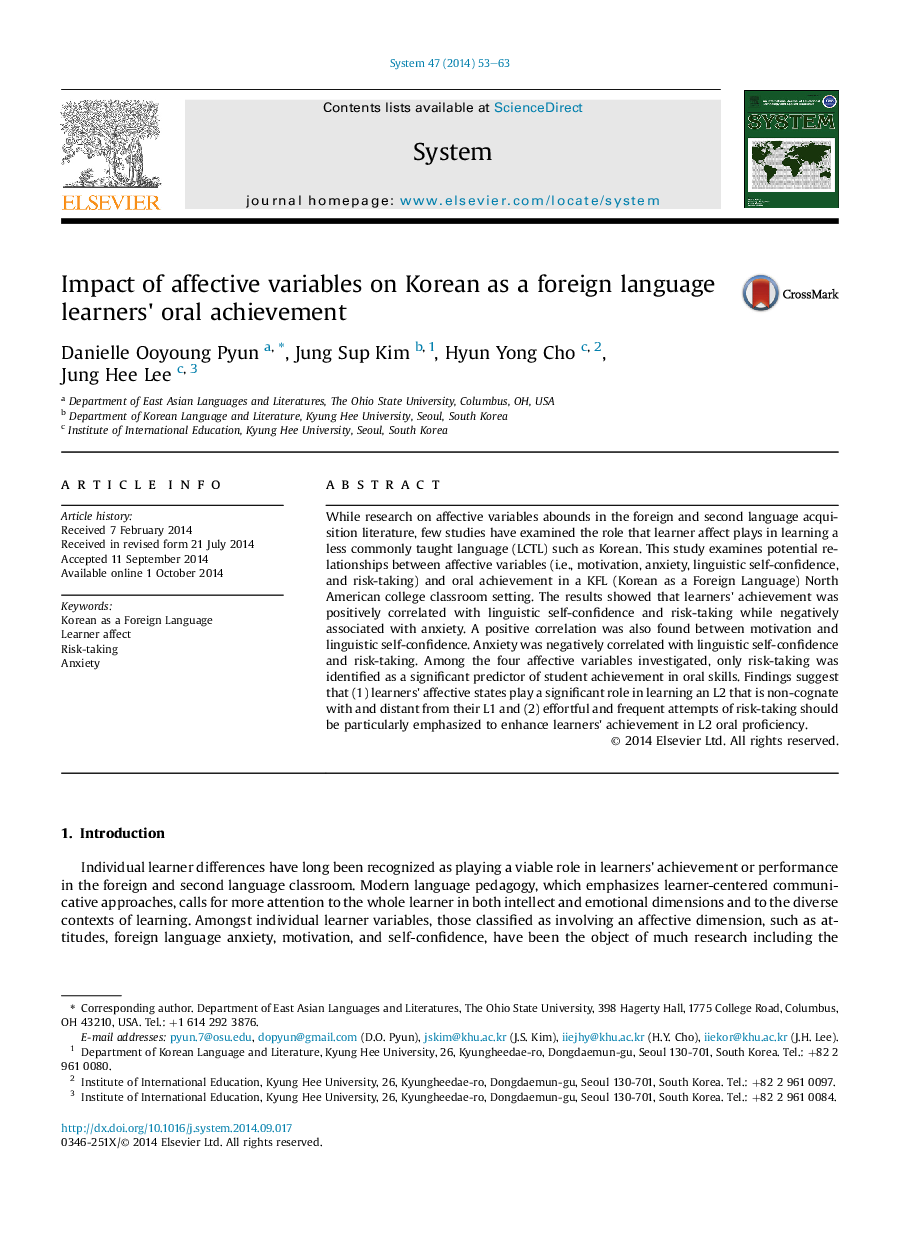| Article ID | Journal | Published Year | Pages | File Type |
|---|---|---|---|---|
| 373030 | System | 2014 | 11 Pages |
While research on affective variables abounds in the foreign and second language acquisition literature, few studies have examined the role that learner affect plays in learning a less commonly taught language (LCTL) such as Korean. This study examines potential relationships between affective variables (i.e., motivation, anxiety, linguistic self-confidence, and risk-taking) and oral achievement in a KFL (Korean as a Foreign Language) North American college classroom setting. The results showed that learners' achievement was positively correlated with linguistic self-confidence and risk-taking while negatively associated with anxiety. A positive correlation was also found between motivation and linguistic self-confidence. Anxiety was negatively correlated with linguistic self-confidence and risk-taking. Among the four affective variables investigated, only risk-taking was identified as a significant predictor of student achievement in oral skills. Findings suggest that (1) learners' affective states play a significant role in learning an L2 that is non-cognate with and distant from their L1 and (2) effortful and frequent attempts of risk-taking should be particularly emphasized to enhance learners' achievement in L2 oral proficiency.
